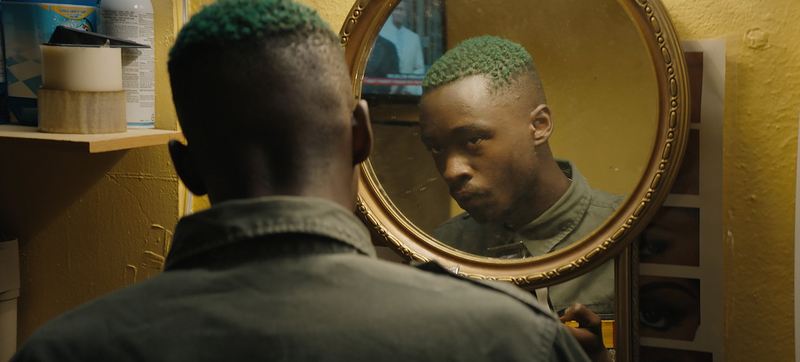Native Son undergoes reinvention and rediscovery just slightly more often than it gets mired in one adaptation or another. The movie versions of the groundbreaking, anguished granite load that is the Richard Wright novel have proved especially tricky.
Now showing on HBO and HBO GO, the latest incarnation of Native Son hauls that granite load up a hill of the collaborators' creation. Casual viewers will likely struggle with it, or find it stodgy even with its radical time relocation. Others may appreciate the update's willingness to try new things, continually if not always excitingly, in the space of about 100 minutes. Either way, the key performance by Ashton Sanders, best known for Moonlight, is the best thing about it; in his hands, Bigger Thomas becomes a person, not an archetype.
The first-time feature director Rashid Johnson, who's foremost a visual artist, takes his cue from the script and locates Wright's 1940 novel in 2019 or thereabouts. (This version was filmed last year in Cleveland, mostly, with a few days in Chicago, and premiered in January at the Sundance Film Festival.)
Bigger Thomas, the ill-fated black South Sider, now lives his short life in contemporary Chicago and environs. The adaptation comes from the playwright and screenwriter Suzan-Lori Parks, whose work has ranged from exhilarating feasts of poetic language (The America Play) to not-quite realism (the Pulitzer Prize-winning Topdog/Underdog). Her dialogue, punctuated by occasional voice-over narration, sounds natural one minute, stylized the next. "Politics just ain't my thing," Bigger says at one point. Elsewhere, urged by a friend into a robbery, he answers: "Sorry, I'm not interested in being part of some least-common-denominator stereotypical Negro s -- -."
Novelist Wright wasn't interested in that, either, though many (including James Baldwin, who was once Parks' teacher) considered Native Son an inadvertent example of that very thing, despite its grim force. Bigger's a bike messenger in this new version, living with his siblings and his mother (Sanaa Lathan), avoiding the potholes of temptation and prejudice everywhere. The early close-up of Bigger's pistol lying atop a copy of the Ralph Ellison book Invisible Man portends what's to come.
Misery arrives disguised as opportunity. In this Native Son, as in the novel, Bigger goes to work as a driver for a wealthy man (Bill Camp) and his blind wife (Elizabeth Marvel). Their brazen, blissfully insulated daughter, Mary (Margaret Qualley, creating a character both funny and compellingly strange), flirts with radical leftist politics left over from Wright's novel. One significant change among many: Bigger and his girlfriend, Bessie (KiKi Layne, lately of If Beale Street Could Talk), become friendly with Mary and her boyfriend, Jan (Nick Robinson), picnicking down at the lake, dropping in on a party at a Gold Coast mansion.
Inevitably, we arrive at the accidental murder that sets up Bigger's smaller and smaller world. This is where the new Native Son stumbles and never fully regains its modern footing. Director Johnson hasn't found a way to make this key scene plausible, and while individual compositions are intriguing (one shot is dominated by one of Johnson's own paintings), Bigger's travails drift into a languid meditation on the novel's themes. Parks' writing would've responded very differently, I suspect, to a director like Boots Riley (Sorry to Bother You), able to turn the words into action.
Where you land on Native Son likely depends on whether you think this is exactly the right time to push Wright's story into the violence of the present, or whether the story's better off staying put in the violence of the past. The best of this half-and-half experiment, half success, half honorable disappointment, focuses on the one-to-one interactions between some very good actors. Shrewdly, screenwriter Parks finds an entirely new way to resolve the relationship between Bigger and Bessie, in a culminating scene set in a concrete warehouse. You feel something for these two here, even if the world around them doesn't.
Style on 04/14/2019
